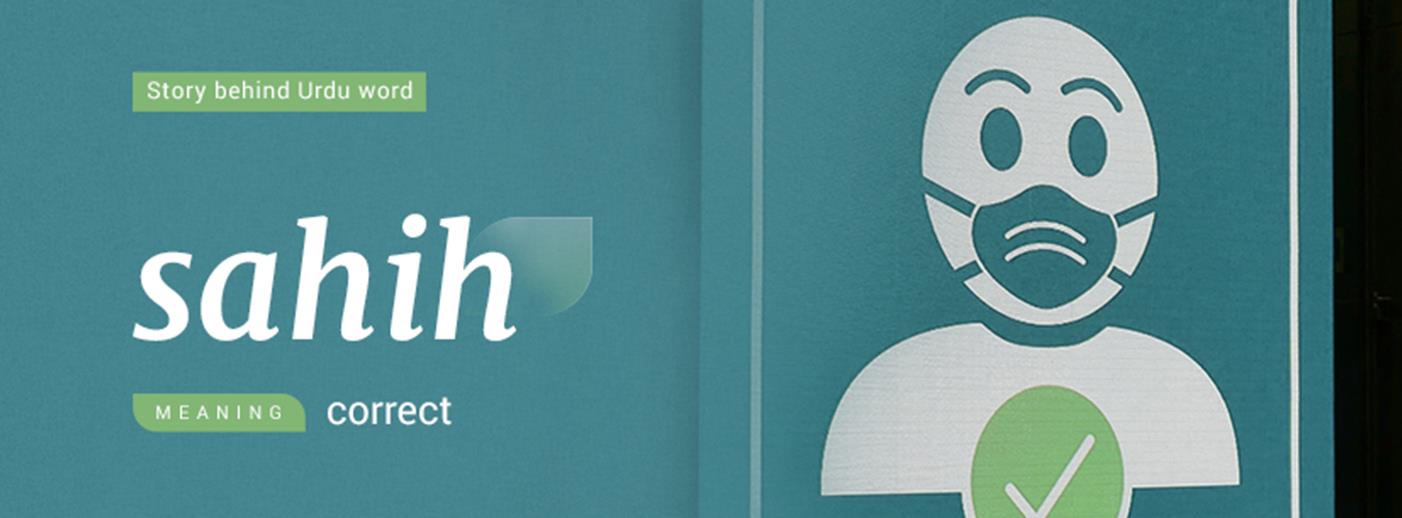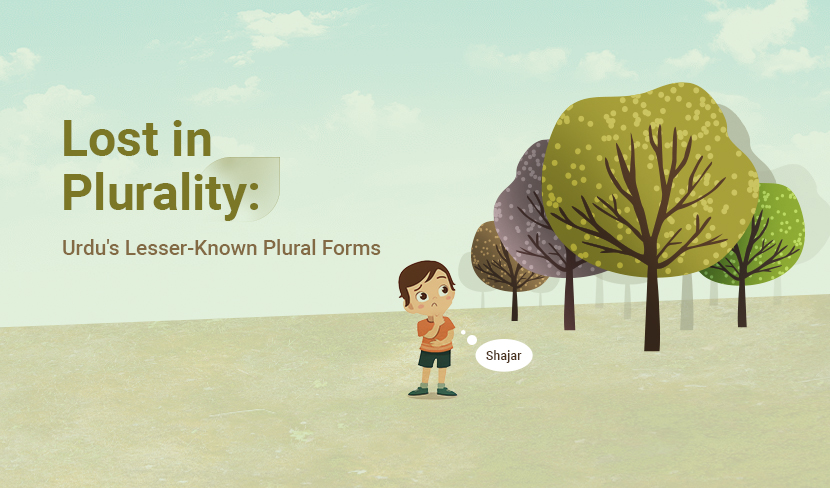Top searched
Saved words
khisyaanii billii khambaa noche
an embarrassed or ashamed person tends to vent his/her feeling by quarrelling
be-niyaaz
without want, free from want, wanting nothing, not in need, able to dispense, independent, carefree
Sahi vs Sahih: Do You Know the Difference?

Harf-e-ghalat ko sun kar dar-pai na khuun ke hona
Jo kuchh kiyaa hai main ne pahle use sahi kar
Meer Taqi Meer
It’s a classic case of identity-swipe, but with a word as its subject, not person!
Give it a guess, how often do you use the word ‘sahi’ in your everyday speech?
Ah, forget bothering, it’s not worth the sweat!
‘Aa to sahi’, ‘Aisa ho to sahi’, ‘Nahin to na sahi’, and countless other phrases.
Sahi is mainly used as an article of emphasis in Urdu. But, as always, there is much more to it.
All of us who’ve been scolded by our elders for our childish stupidities must’ve endured the wrath of this phrase, ‘Ise to sahi aur ghalat mein farq maaluum hi nahin hai’.
What you see above is actually the Arabic word ‘Sahiih’, that’s gradually metamorphosed into ‘Sahi’. Moreover, the two differ in script as well, the Arabic ‘Sahiih’ is written as ‘صحيح’ whereas its Hindustani twin ‘Sahi’ is scribed as ‘سہ'.
The many meanings attributed to Sahih range from healthy, entire, real, correct, to signature, and attestation.
The same Sahih gives us the words ‘Sehat’, which is correctly pronounced as ‘Sihhat’ meaning health, soundness, and Tas.hih meaning correction, or making something right.
Moreover, Sahih too is used as an article of emphasis; Yaqin had an entire Ghazal with the emphatic radeef ‘to Sahih’:
Dukh to detaa hai karun main tujh ko hairaan to sahih
Baaghbaan ab ke ujaaDe yu gulistaan to sahih
Inamalluh Khan Yaqin
Notice how deeply the meanings of Sahih and Sahi cross each other? It is precisely this intercross that has made speakers for over two centuries use the two words interchangeably.
Here’s another interesting insight for you, in Marathi, the word ‘Dast-KHat’ is taken in for the word ‘Sahi’, i.e. they say ‘Dast-Khat Hai’ as in ‘Sahi hai’ or correct; a word that we use for signature.
The roots of this analogy-cum-anomaly again lie in the meanings of ‘Sahih’. The reason behind ‘Dast-Khat’ connoting ‘Sahi’ is that a signature is only marked on a paper that is correct or, again, Sahih.
Of course, there’s no rigid rule that forces us to use Sahi for Sahih or vice versa. It’s just a strange inquisitiveness that drives us language-buffs to know more, and avoid hearing:
‘Ise to SAHIH aur ghalat mein farq maaluum hi nahin hai’
Delete 44 saved words?
Do you really want to delete these records? This process cannot be undone





